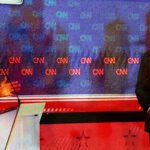Tuesday, March 19, 2024
Year : 2, Issue : 12
The contrasting reactions underscored the geopolitical fault lines that have gaped wider since Russia launched a full-scale invasion of Ukraine two years ago, triggering the deepest crisis in relations with the West since the end of the Cold War.
Arriving in Brussels yesterday, EU foreign ministers roundly dismissed the election result as a sham ahead of agreeing sanctions on individuals linked to the mistreatment and death of Kremlin critic Alexei Navalny.
“Russia’s election was an election without choice,” German Foreign Minister Annalena Baerbock said at the start of the meeting.
Playing on Moscow’s reference to its war in Ukraine as a “special military operation”, French Foreign Minister Stephane Sejourne said Paris had taken note of the “special election operation”. “The conditions for a free, pluralistic and democratic election were not met,” his ministry said.
British Foreign Secretary David Cameron said the election outcome highlighted the “depth of repression” in Russia.
France, Britain and others condemned the fact that Russia had also held its election in occupied regions of Ukraine that it claims to have annexed during the war.
The Kremlin dismissed such criticism, saying the 87 percent of the vote won by Putin during the three-day election showed that the Russian people were consolidating around him.
Ukrainian President Volodymyr Zelensky said Russia’s election had no legitimacy.
A White House spokesperson on Sunday said Russia’s election was “obviously not free nor fair”. President Joe Biden has not yet commented.
In sharp contrast, Chinese President Xi Jinping congratulated Putin, and said Beijing would maintain close communication with Moscow to promote the “no limits” partnership they agreed in 2022, just before Russia invaded Ukraine.
Indian Prime Minister Narendra Modi echoed that message, saying he looked forward to strengthening New Delhi’s “time-tested special and privileged strategic partnership” with Moscow.
Source: Reuters






